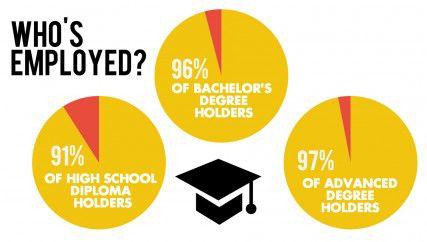
As a struggling economy brings the value of college education at schools such as Boston University to question, a new study released Monday finds the investment is well worth the economic rewards.
“The earnings premium for going to college, on average, lasts throughout a lifetime,” said Peter Doeringer, a professor of economics at BU’s College of Arts and Sciences. “The lifetime value of a college degree depends on the choice of discipline, type and location of jobs and a variety of demographic characteristics.”
The study, which was conducted by the Urban Institute, evaluated the economic worth of a college education by measuring the financial benefits higher education can provide throughout a lifetime to find that the economic returns outweigh the price of tuition.
“Higher levels of educational attainment are associated with higher earnings for a variety of reasons,” the study stated. “Whether workers have some college but no degree, an associate degree, a bachelor’s degree or an advanced degree, they are likely to earn more than they would without postsecondary education. They are more likely to be employed and if they are employed, more likely to be working full time.”
Doeringer said the economic value of a college education is most evident when comparing the average earnings of those with a degree against those without one.
“The combination of rising demand for college-grads and falling earnings among people without college degrees has continued to make a college degree a good investment relative to the alternative of not having a degree,” Doeringer said.
Although the study points to the overarching value of earning a college degree, it likely examines data from recent decades, said Randall Ellis, a CAS professor of economics.
“The world has changed dramatically in the past decade as the world has become flatter and smaller, so that things that were true 20 years ago may not be so true today,” Ellis said. “Still, the evidence is that the world values advanced skills that come from higher education more than lower level skills such as result from only a high school education.”
Ellis said while college education is valuable, not all educations are created equally despite having equal tuition costs.
“Tuition plus fee costs at some other Boston area universities are within a few thousand dollars of BU’s tuition, but one can question whether the identical degrees from such schools are as valuable as those from BU and other universities,” Ellis said. “Much of the recent evidence in the diminishing value of universities is related to the proliferation of weak college programs that do not necessarily increase earnings as much as strong colleges and universities.”
Rui Min Sim, a School of Management freshman, said BU is worth it for both the economic return and the experience of being a university student.
“I’m taking advantage of the entire experience here,” Sim said. “It’s not just the school itself, it’s also being in the community, how much you are involved in the school, and also taking advantage of what Boston has for you. I think that is in itself an investment more than just tuition itself.”
Michael Schade, a senior in BU’s College of Communication, said paying for college involves taking the risk that it might not be worth the tuition.
“I know I could have gotten a diploma from another school for less money,” Schade said. “… But the way I look at it is it’s just a decision that I made and I think that it has its rewards. Its upsides, whether they justify what it costs — we’ll see.”























































































































